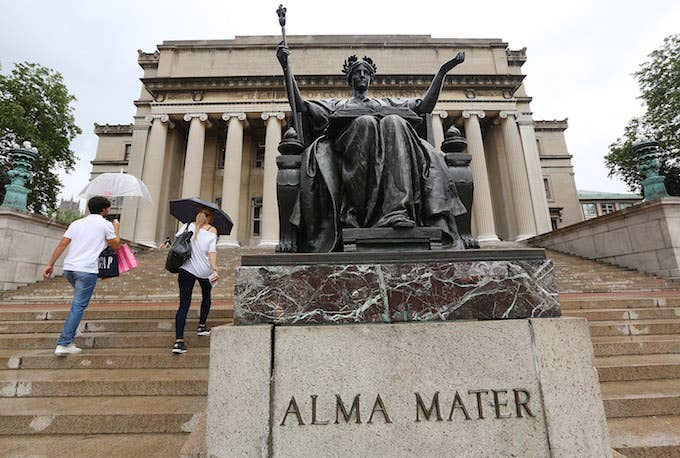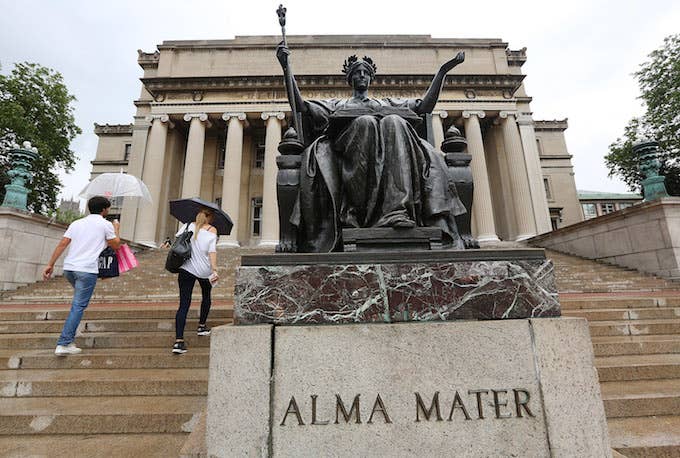
If there's anything to be learned from the recent conversations around sexual misconduct, it is that the issue exists in far more spaces than just Hollywood. In academia, there are countless examples of assault, coercion, and abuse of power. Often, the accused is protected by these institutions due to tenure and policy loopholes. Outdated rules are at the center of a landmark case surrounding a professor at Columbia University who, according to Buzzfeed News, was let off the hook for sexual assault and kept his job for an additional 20 years.
Student Mozhan Marnò claims her former professor Thomas Roma aggressively pursued her, and they eventually had a relationship she describes as consensual, but abuse of his power and manipulative. She would eventually report him to the school. Until 2012, Columbia had no rules about student-teacher relations, and given that most college students are 18 and older by the time they arrive, it's seen as a legal gray area to some.
After filing her official complaint in 2000, a panel assessed that Marnò "provoked and contributed to" Roma's actions, and even offered to wipe the charge off his record if no other complaints came to light within two years. By the time, the school had been made aware of at least three different similar complaints, revealing a pattern of sexual misconduct. After a lengthyNew York Times exposé, Roma retired from his long-held teaching position.
Marnò's complaint was filled with gut-wrenching details that showed just how conflicting the incident was for her, even affecting her ability to figure out if she was doing well in his photography class on her own merit or not. "I began having more and more difficulty discerning whether the critiques reflected how he felt about me personally,” she wrote, “or the quality of the work itself.” In the letter, she also speculated that her own experience was "not the first instance of this happening" with Roma.
She was right. The inappropriate behavior didn't end with Marnò. In documents obtained by Buzzfeed interviewing students, faculty, and administrators, school leadership knew the well-connected professor had a penchant for inappropriate student relationships, but kept him on staff for years. A Buzzfeed survey also found that 17 of 25 universities in the country didn't explicitly ban romantic relationships between professors and students, granted said students are not in their classes, but Columbia President Lee Bollinger allegedly told the Columbia Spectator of his intent to ban all professor-student relationships going forward.
“These policies vary among universities, but experience shows almost none is strong enough to protect students,” said Ann Olivarius. Her law firm, McAllister Olivarius, handles tons of sexual misconduct cases at U.S. universities specifically. “It’s the students, usually women, who pay the price.”
Thanks in part to how many schools don't take direct aim at preventing student-professor relations, there exists plenty of incidents at schools across the country. So much so, that last year a list of shitty men in academia called "Sexual Harassment in the Academy, " racked up around 2000 entries.

